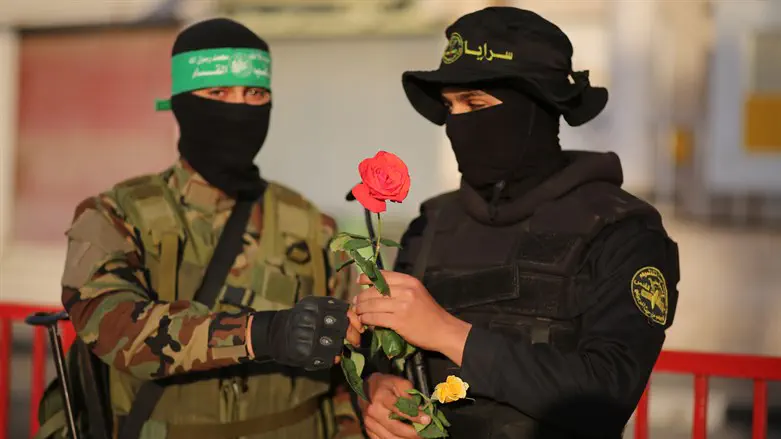
The hundreds of freed terrorists who are being exiled to countries like Turkey and Qatar as part of the ceasefire deal with Hamas will present a significant challenge to the Mossad, which will be tasked with preventing these terrorists from committing attacks on Israeli and Jewish targets abroad, according to a report by the Jerusalem Center for Security and Foreign Affairs (JCFA).
230 of the terrorists who are being released will be exiled rather than allowed to return to the Palestinian Authority and Gaza due to the severity of their crimes and the likelihood of their returning to violent activity. Israel's security establishment fears that many will return to terrorism as has been the case with previous hostage deals such as the Shalit deal in which about half of the over 1,000 terrorists who were freed resumed terrorist activity.
Of particular concern are the terrorists who will be exiled to Turkey, which has emerged as a supporter of Hamas in recent years and permits the terrorist organization to operate within its territory. In addition, terrorists who are exiled to one country may not stay in that country and could travel to other countries to act on Hamas' behalf or to commit terrorist attacks.
While deportation will prevent the exiled terrorists from posing a direct threat to Israelis in Israel, it will also make carrying out surveillance of their activities more difficult than if they remained in Judea and Samaria.
The report states that "the deportation of these terrorists abroad expands the global terrorist threat against Israel."
The task of monitoring these freed terrorists and preventing them from committing acts of terrorism will fall to the Mossad
